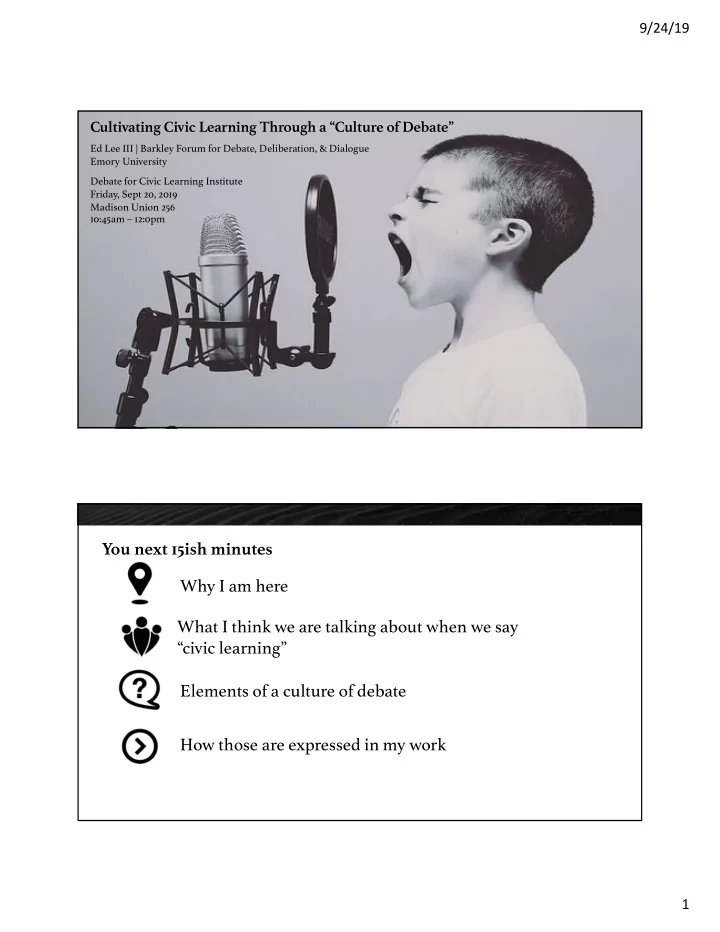

9/24/19 Cultivating Civic Learning Through a “Culture of Debate” Ed Lee III | Barkley Forum for Debate, Deliberation, & Dialogue Emory University Debate for Civic Learning Institute Friday, Sept 20, 2019 Madison Union 256 10:45am – 12:0pm You next 15ish minutes Why I am here What I think we are talking about when we say “civic learning” Elements of a culture of debate How those are expressed in my work 1
9/24/19 Why am I here? What are we talking about when we say “civic learning”? 2
9/24/19 1. It fosters a capacity to understand difference If democratic citizenship involves learning to live with and alongside other people, then an appropriate civic education must foster the capacity to understand people who may act from very different understandings, motives, and capacities. David L Coulter & John R Wiens (2008) , Why Do We Educate Renewing the Conversation , 107 th Y earbook of the National Society for the Study of Education, p. 143 2. It helps us to appreciate that we are citizens of the world Citizens who cultivate their humanity need an ability to see themselves as not simply citizens of some local region or group but also, and above all, as human beings bound to all other human beings by ties of recognition and concern. The world around us is inescapably international. Martha Nussbaum (2002), “Education for Citizenship in an Era of Global Connection, Studies in Philosophy and Education, p. 295 3
9/24/19 3. It encourages us to make “good trouble” I believe civic education must have a clearly political orientation… Politically oriented civic education requires young people to be able to see, be indignant about, and expose the flawed justifications for inequality. This involves educating citizens to be `difficult´ in cases where a person’s or group’s equality is not recognized. Claudia Ruitenberg (2018), “Learning to be Difficult: Civic Education and Intransigent Indignation,” On Education: Journal for Research and Debate, doi: 10.17899/on_ed.2018.1.5 What is a “culture of debate”? 4
9/24/19 1. Embrace ideological humility 2. Empathy precedes critique 5
9/24/19 3. Engage in thoughtful critique of ourselves and others 4. Generation of knowledge is a team sport 6
9/24/19 Cultivating civic learning through a culture of debate at Emory Atlanta Urban Debate League (AUDL) 7
9/24/19 Emory Conversation Project Debate, Dinner, Dialogue: A Three Course Conversation 8
9/24/19 Rapt By Others: A Book Salon 9
Recommend
More recommend